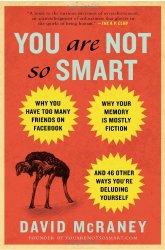I’ve been running a large team of software and infrastructure engineers for the past two years. I’ve just left this job to move to a larger, consumer facing company. I’m obviously excited about the move, but I’m also going to miss the team that was such a huge part of my success.
This is the first time I’ve given notice from a leadership position and much of the experience was a surprise to me. Here are some notes from my experience.
Keeping secrets is hard: This was incredibly difficult for me. I pride myself on being transparent with the people that work for me and I care about them deeply. I can’t tell you how many conversations I had in the final few weeks of negotiation and background checking where I tried in many different but subtle ways to say, “Can we hold off on this conversation for a few weeks?” And in most of those cases, we really couldn’t hold off, so we had to revisit the conversation after I gave notice. I kept a running list of these types of conversations, and at times it was a little overwhelming.
If you’re not in a position to be open regarding your job search (and you almost certainly won’t be if you’re running a team), be prepared to be bothered by this one as you go through the process of looking for a new job. For me this was by far the hardest part of my job search.
You are probably being more subtle than you think you are: When I was finally cleared to share the news with my team, I expected emotional reactions from my team, but I wasn’t ready for their surprise. To me, it felt like I had been unintentionally broadcasting my intentions since I started looking — I had caught myself in many many slips; surely this very smart team had caught some whiff of what was coming.
Nope.
It’s not enough time: Whatever notice you’ve given, if you’re running a team, it’s going to be a mad rush to meet with everyone and complete whatever transition you’ve been asked to execute. You’re going to be remembering details that you need to share up until the very last minute.
All the while, as you’re waking up at 2:00am and jotting down notes to review tomorrow, you’re going to be hearing short-timer jokes from colleagues at work. If you’re doing it right, your team will see your efforts, and you’ll be spared that from the people that matter, but you’ll still hear it in the office from people who don’t work closely enough with you to see what you’re doing. Just nod and smile and then rush off to send that email you just realized you need to send off.
It’s too much time: At the same time as you’re frantically scrambling to do whatever it is you need to do, you’re going to be cut out of strategic and planning meetings. It’s going to feel a bit odd, but this another thing you need to accept and move on.
The end feels a bit anti-climatic: After years of hard work and a final crunch to get done what you need to before leaving, the time is going to come for you to just leave. It will be a quiet and reflective commute home.
At least for me, I can say that I’ve left the job, not the people; and I’m looking forward to seeing what the team does in the future. It does, however, feel a bit strange to be watching from afar.
.
